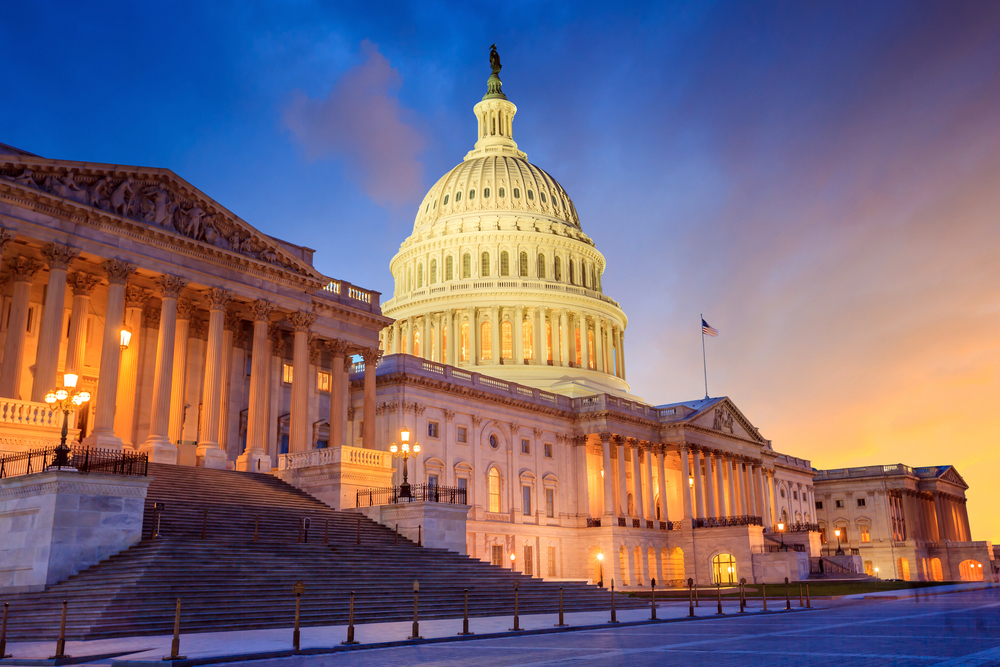The United States Senate has passed a crucial funding bill that could bring the nation’s longest government shutdown to an end within days. Senators voted 60-40 late on Monday, with nearly all Republicans and eight Democrats backing the measure. The bill provides funding for government operations until the end of January.
The legislation now moves to the House of Representatives, which must approve it before President Donald Trump can sign it into law. Trump indicated earlier on Monday that he was prepared to do so. The deal came together after intense weekend negotiations between both parties to restart essential public services and get hundreds of thousands of federal employees back to work.
Rare Bipartisan Support in the Senate
Republicans control the Senate 53-47 and needed 60 votes to pass the bill. Democratic Senators Dick Durbin, John Fetterman, Catherine Cortez Masto, Maggie Hassan, Tim Kaine, Jackie Rosen and Jeanne Shaheen broke ranks to support it. They were joined by Maine’s independent senator, Angus King, who usually votes with Democrats.
Only one Republican, Rand Paul of Kentucky, opposed the measure, siding with most Democrats who rejected it. When the vote was announced, applause echoed through the nearly empty Senate chamber. “We are reopening government and ensuring that federal employees receive the pay they deserve,” said Republican Senator Susan Collins, one of the bill’s main authors.
Shutdown’s Toll on Daily Life
The government has been partially shut down since October, forcing about 1.4 million federal workers to work without pay or take unpaid leave. The shutdown has caused nationwide disruptions, affecting travel, food benefits, and public services.
Air travel suffered heavily on Monday, with more than 2,400 flights cancelled and nearly 9,000 delayed, according to FlightAware. The suspension of food aid has affected 41 million low-income Americans. Many federal agencies have either scaled back operations or shut down completely, deepening the strain on families and communities.
House Faces Crucial Decision
The funding bill now heads to the House of Representatives, where Republicans hold only a two-seat majority. Lawmakers have been out of Washington since mid-September, but Speaker Mike Johnson has called them back to consider the measure starting Wednesday.
Every vote will be critical, and the timeline for a final decision remains uncertain. However, pressure is building for swift action to reopen government offices and restore public confidence.
What the Deal Includes
The agreement extends government funding through 30 January. It includes full-year budgets for the Department of Agriculture, military construction projects, and legislative agencies. It guarantees back pay for federal employees affected by the shutdown and secures funding for the Supplemental Nutrition Assistance Program (SNAP) through next September.
The bill also guarantees a December vote on extending healthcare subsidies set to expire this year. These subsidies help millions of Americans afford health insurance through federal marketplaces. Democratic leaders had refused to approve any funding plan that ignored this issue.
Democrats Divided Over Compromise
The deal was negotiated by Senate Majority Leader John Thune, the White House, and several Democratic senators including Jeanne Shaheen and Maggie Hassan of New Hampshire, and Angus King of Maine. But the compromise has stirred tensions within the Democratic Party.
California Governor Gavin Newsom condemned the agreement as “pathetic.” Senate Minority Leader Chuck Schumer said it “does little to address the nation’s healthcare crisis.”
Virginia Senator Tim Kaine, who voted for the bill, defended the decision, saying federal workers in his state had urged him to support reopening the government. Thune promised to revisit the healthcare subsidy issue by mid-December, though Speaker Johnson has said he will not schedule a House vote on it.
Trump Backs the Agreement
President Trump voiced his approval of the deal earlier on Monday. “We’ll be opening up our country very quickly,” he said from the Oval Office. “The deal is very good.”
If the House approves the legislation, the government could reopen within days, bringing relief to millions of Americans affected by months of political gridlock, halted paychecks, and frozen public services.

